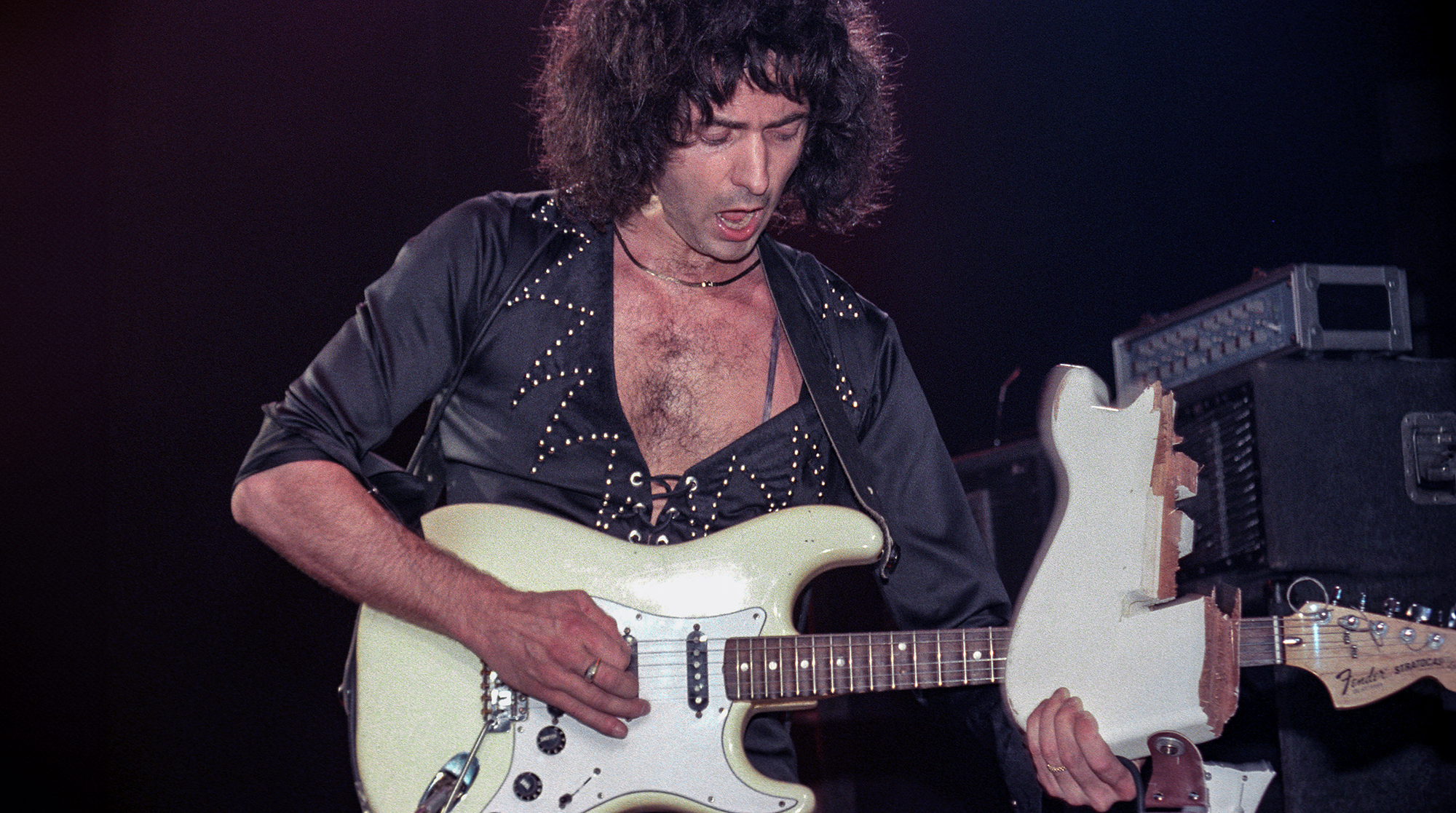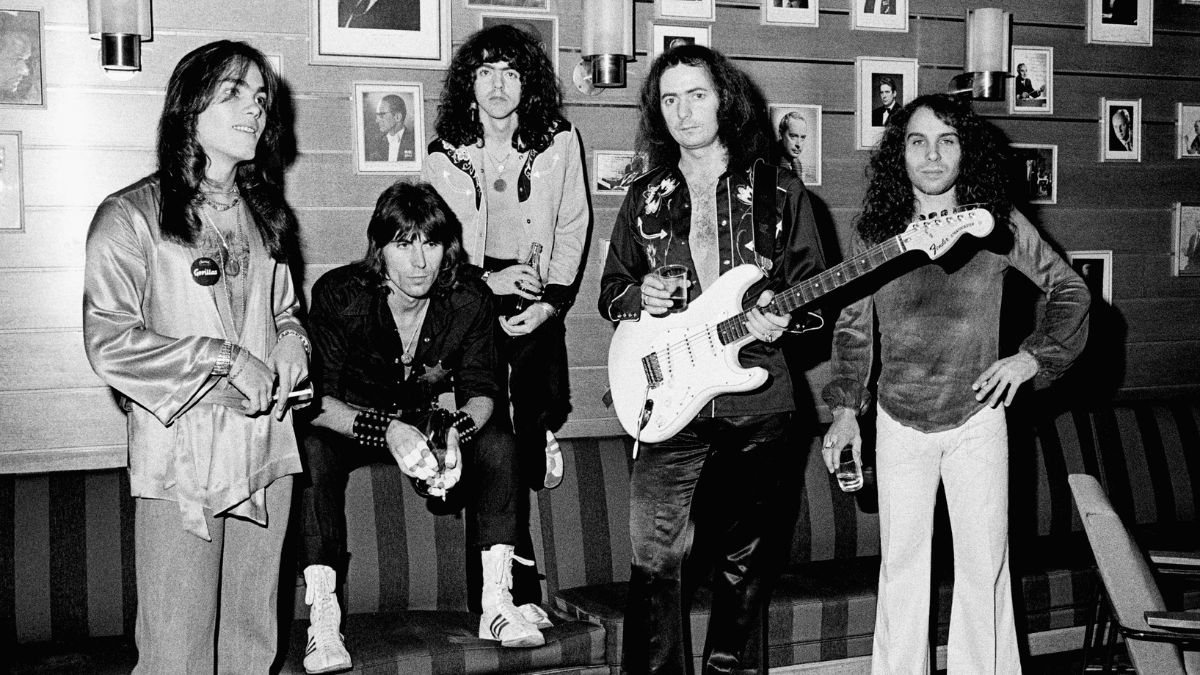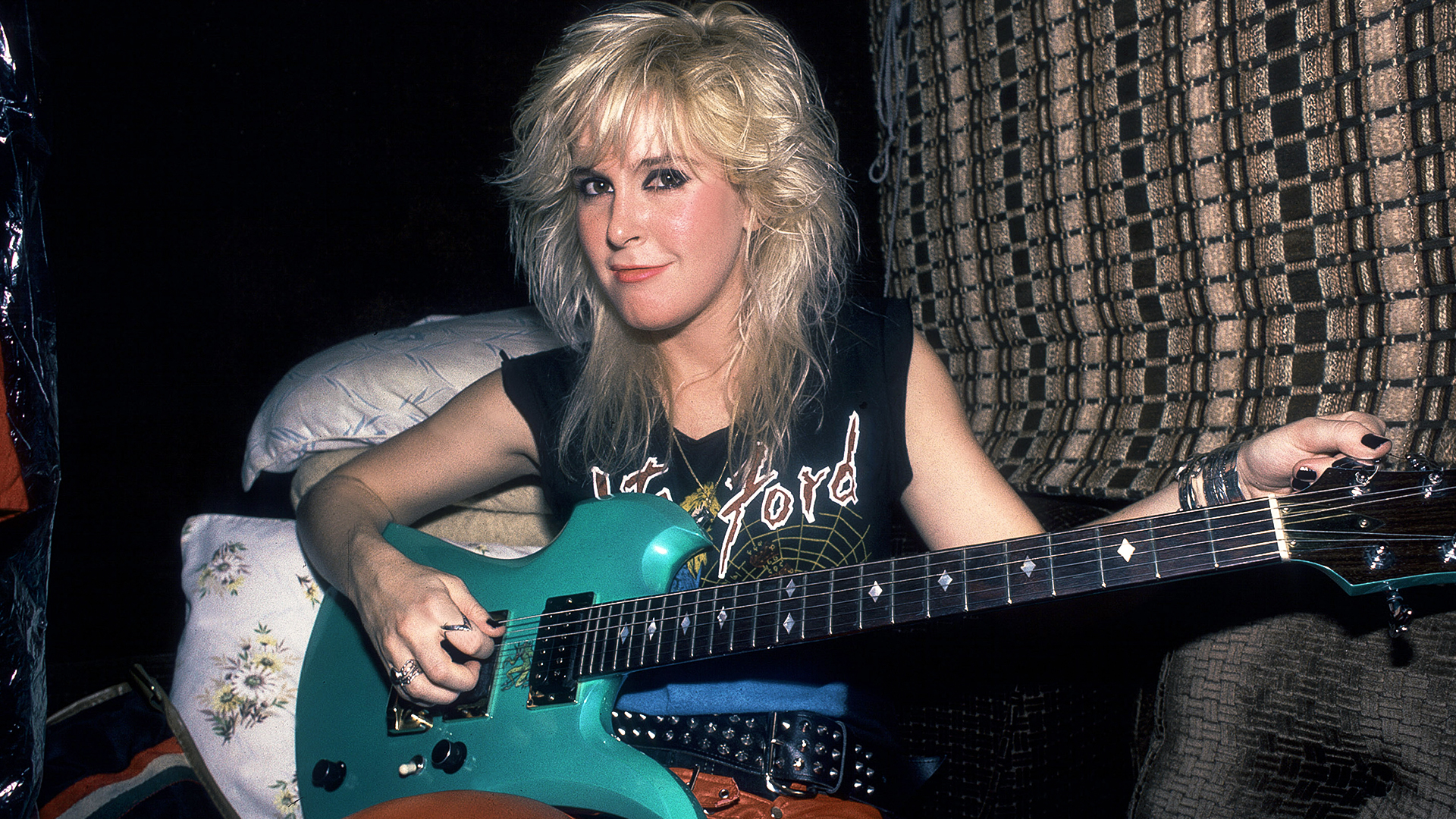“It was more what Ritchie wanted to do. The rest of us grumbled and moaned. But we did it.” Ritchie Blackmore decapitated Deep Purple. With Rainbow, he had another tactic at his disposal
He’d formed the band in equal partnership with Ronnie James Dio, but the singer soon discovered things wouldn’t be so democratic

Deep Purple were rendered speechless when, in a Munich hotel in March 1975, Ritchie Blackmore announced he was leaving the band he'd co-founded seven years earlier.
In retrospect, it made sense that the guitar virtuoso should want to move on. Having fought tooth and nail to emerge as the leader of the hard-rock act, he was ready to put together a new group of his own, where his authority would be established from the get-go.
Because if there was one thing Ritchie Blackmore wanted, it was control.
He'd grabbed it in Deep Purple by unseating Ian Gillan, their second singer, with whom they’d enjoyed breakthrough success with hits like "Highway Star" and “Smoke on the Water.”
“He was, as they say, an alpha guy. So was I,” Blackmore later recalled. “He wanted to control, I wanted to control. So we butted heads because of that.”
Once Gillan quit, Blackmore wasted no time dismissing bassist Roger Glover. To replace them, he chose: a then-unknown singer by the name of David Coverdale and bassist Glenn Hughes. But Blackmore's choices backfired on him. Coverdale and Hughes brought funk and soul influences to the group's music that, ultimately, drove the guitarist away.
He turned to Ronnie James Dio and his band, Elf, for his next endeavor, Rainbow. The band’s 1975 debut, Ritchie Blackmore's Rainbow, received mixed response, however — Rolling Stone said Blackmore sounded “listless and bored” and highlighted the anonymity of his fellow bandmates.
All the latest guitar news, interviews, lessons, reviews, deals and more, direct to your inbox!
Perhaps the criticism cut deep. Soon after its release, Blackmore took a tight grip on the band. He fired everyone except Dio, and hired drummer Cozy Powell, bass guitarist Jimmy Bain and keyboardist Tony Carey.

“Ritchie was the boss of the band,” Dio told Radio Trent in Nottingham in 1981 (via Ultimate Guitar). “I mean, there's just no two ways about it. I wouldn't delude myself into thinking that, even though he and I did form that band as an equal partnership. We were 50/50 members of that band. We wrote all the material together, 50/50. We shared in the profits and expenses, 50/50.”
Even so, Dio said, “His opinions and his judgment had to be respected. I did respect Ritchie's opinions and judgment, but it was not a very democratic situation at all.”
Of the new members, Powell had the biggest name, having already spent several years in Jeff Beck’s band and his own group Hammer, which featured the talents of future Whitesnake guitarist Bernie Marsden.
“When Cozy came in, there started to be a lot of jockeying for position,” Dio said. “We always knew who number one was, and I was number two, 'till Cozy came in and Cozy and I went, 'Who's going to be number two?’
“It was more what Ritchie wanted to do, and the rest of us kind of grumbled and moaned. But we did it.”
By 1979, as the band came off a performance at the Reading Festival and the release of their fourth album, Down to Earth, their carousel of member changes was garnering considerable attention.
By that point, Dio was out and Graham Bonnet was fronting the group, Don Airey was on keyboards, and Blackmore's former Deep Purple bandmate Roger Glover — the very bassist he had pushed out, along with Ian Gillan — was holding down the low end. Blackmore and Powell were the only mainstays.
If musicians in the band don't give 110 percent, they're booted out rather sharply.”
— Cozy Powell
After joking that none of the ex-members could make a proper cup of tea, Powell told one interviewer that “Ritchie and I have got certain standards. If musicians in the band don't give 110 percent, they're booted out rather sharply.
“It's a very competitive business,” he added. “You've got bands coming up all the time that are trying to blow you off.”
Blackmore was more blunt later that year when Sounds asked about the firings of his former bandmates.
“If they were good enough, they'd still be in the band,” he grumbled.
Blackmore wasn’t a figure to be trifled. Many players had to learn that the hard way.
In related news, Blackmore has put recent health issues behind him and is headed back out on the road.
A freelance writer with a penchant for music that gets weird, Phil is a regular contributor to Prog, Guitar World, and Total Guitar magazines and is especially keen on shining a light on unknown artists. Outside of the journalism realm, you can find him writing angular riffs in progressive metal band, Prognosis, in which he slings an 8-string Strandberg Boden Original, churning that low string through a variety of tunings. He's also a published author and is currently penning his debut novel which chucks fantasy, mythology and humanity into a great big melting pot.


